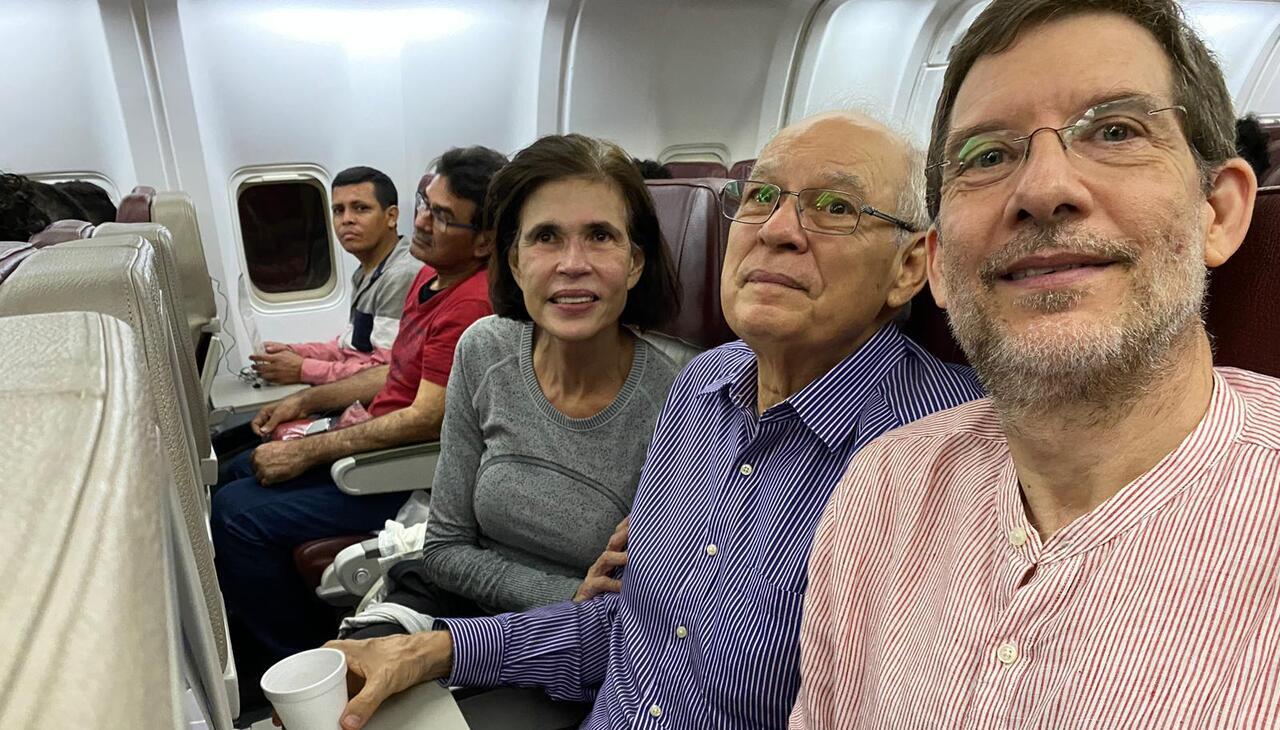
222 political prisoners released and exiled in Nicaragua
They were declared "traitors to the country," stripped of their nationality and permanently banned from holding public service positions.
The decision to release 222 political prisoners in Nicaragua was made by the Nicaraguan National Assembly, controlled by the ruling party. It approved a reform to the Constitution that allowed them to issue verdicts and suspend the citizen rights of those released.
Juan Carlos Arce, from the Nicaragua Nunca Más Human Rights Collective, told CNN:
In the recent history of Latin America there is no precedent of exile like the one that occurred in Nicaragua.
Europe applauds the release
Through a statement, the European Union (EU) said that, although it felt "satisfaction and relief" for the release of the political dissidents in Nicaragua, they should not have spent a single day in prison.
The EU, which considered the measure a positive step that should be endorsed with a more open dialogue, also rejected the decision to deprive the former prisoners of their Nicaraguan citizenship and their civil and political rights.
In addition to thanking the Biden administration for offering the U.S. as the landing spot for the former prisoners, the EU reminded the administration of Daniel Ortega that the organization is open to dialogue, "as long as it is through appropriate diplomatic channels and in a respectful manner."
RELATED CONTENT
Twenty-one officials and members of the Ortega family, including the children and his wife and vice president, Rosario Murillo, and three Nicaraguan entities, are still on an active sanction list at the EU. The package of sanctions was renewed for one year in October 2022.
Spain's government, through the Minister of Foreign Affairs José Manuel Albares, said that it will offer Spanish citizenship to the 222 political prisoners released by Nicaragua.
Esta noche he recibido el cariñoso mensaje del querido y admirado defensor de #DDHH @maradiaga, disfrutando el abrazo amoroso de @bertavalle y su hija. Mi mayor deseo para Felix y todas las personas desterradas es un pronto regreso a una #Nicaragua libre pic.twitter.com/Xt2Be9rYwF
— Erika Guevara Rosas (@ErikaGuevaraR) February 10, 2023
A major humanitarian effort
"We cannot believe it. Today an unimaginable, unfair, unacceptable torture ends, which should never have been committed against more than 250 Nicaraguans, political prisoners of an implacable regime," Elektra Lagos, director of the International Human Rights Network, told DW.
The Ortega administration says that the decision is not due to any agreement with Washington, but some sources indicate that the release is due to a possible exchange with the United States and the European Union. Theories suggest an effort to reduce international sanctions.
Spanish MEP Soraya Rodríguez told DW that before initiating any type of dialogue with or recognition of the Nicaraguan government, a demand must be made for the safe return of the exiles to their country.
Relations between Nicaragua and the EU deteriorated dramatically in 2022 after the government in Managua declared the bloc's representative in that country, Bettina Muscheidt, persona non grata.










LEAVE A COMMENT: